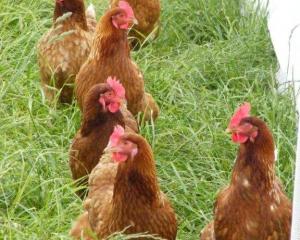There were three times as many takers as plants when the Government gave away 1.8 million manuka seedlings this planting season, Manuka Farming New Zealand chief executive Stephen Lee says.
Manuka, once a farmer’s most hated weed, is now being planted at about 9.2 million trees a year. But more manuka plantations are needed if New Zealand is to meet its goal of $1.2 billion in manuka honey earnings by 2026.
Manuka Farming New Zealand (MF) was contracted to manage the 1.8 million manuka plants the Ministry for Primary Industries wanted to give away this season. Within three weeks it could have given away 6.4 million.
Those plants are now going into the ground in Marlborough, Northland, the Bay of Plenty, Hawke’s Bay, Whanganui, Waikato and Nelson.
"I’m really feeling confident that we are the right industry at the right time," Mr Lee said.
MF is the commercial arm of one of the Government’s 21 primary growth partnerships, the Manuka Research Partnership Ltd (MRPL). Its goal was to find out whether manuka plantations are technically and financially feasible.
The partnership finishes this year, and has concluded that they are. But Mr Lee said feasibility depended on size — at least 50ha and the bigger the better — and the right mix of manuka cultivars.
As to whether manuka honey could deliver the $1.2 billion a year in income, Mr Lee said that depends.
Modelling shows it is possible to make $1300per hectare from a managed manuka plantation on marginal hill country, after an establishment period of seven years.
So the potential is there, if enough manuka is planted. But with the country in haste to store carbon, marginal hill country may end up planted in pine trees instead.
"There are too many things happening that make it difficult to make an accurate prediction," Mr Lee said.
MF wants to be the country’s go-to specialist in managed manuka plantations, and to make the full range of manuka cultivars available to customers. MF’s four staff can assess sites, prepare plans and oversee local people in establishing plantations. They then monitor them for the four years before hives go on.
They have about 20 plantations going so far, with more in the pipeline. Honey with a UMF (ultra manuka factor) of 12 receives $45/kg wholesale. A UMF of 25 gets it to $170/kg.
"We see huge potential to provide a sustainable source for manuka honey in New Zealand, to optimise land use in areas which have returned little, to enhance the environment and to bring people back to remote areas," Mr Lee said.
— Wanganui Chronicle















